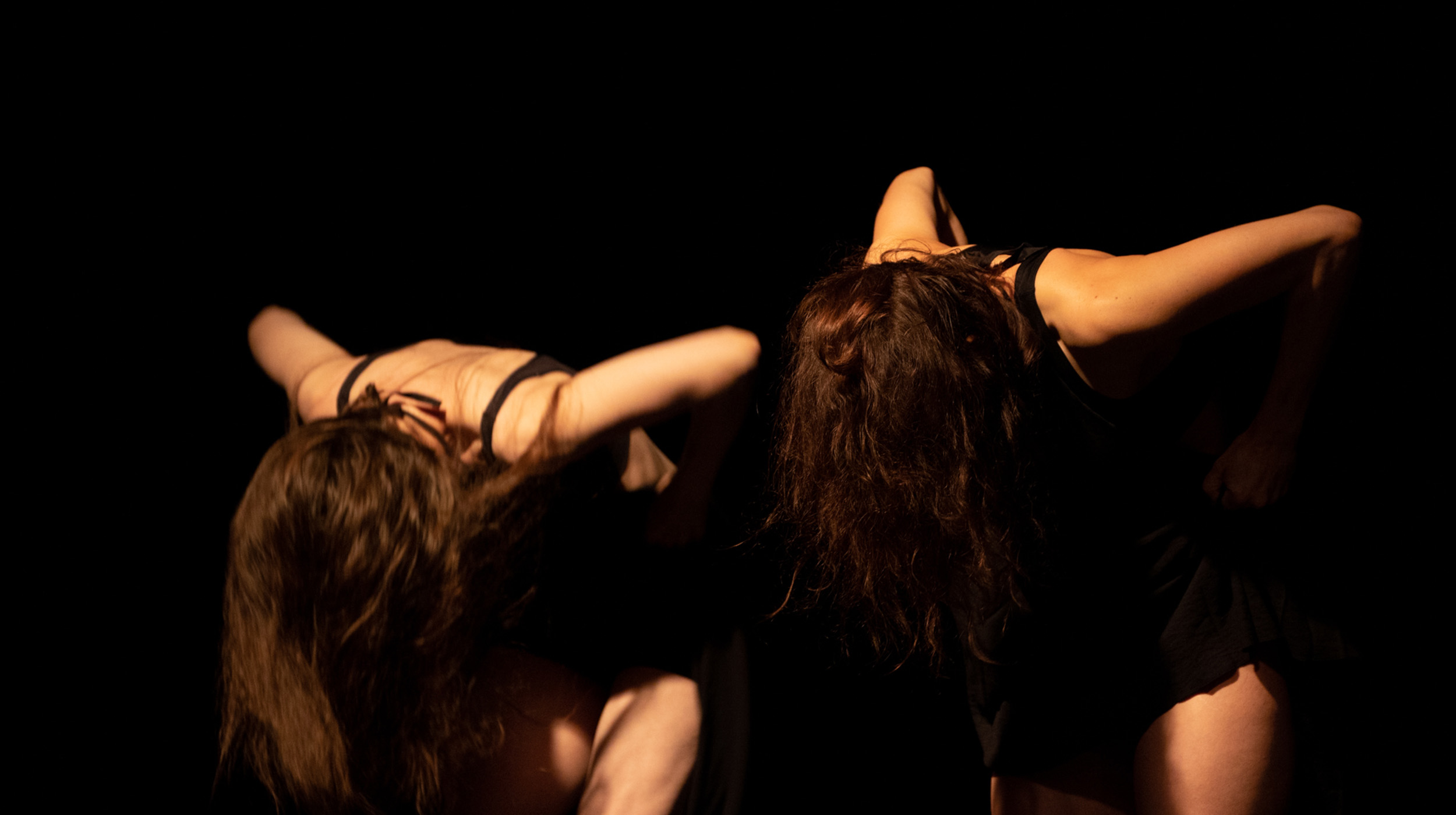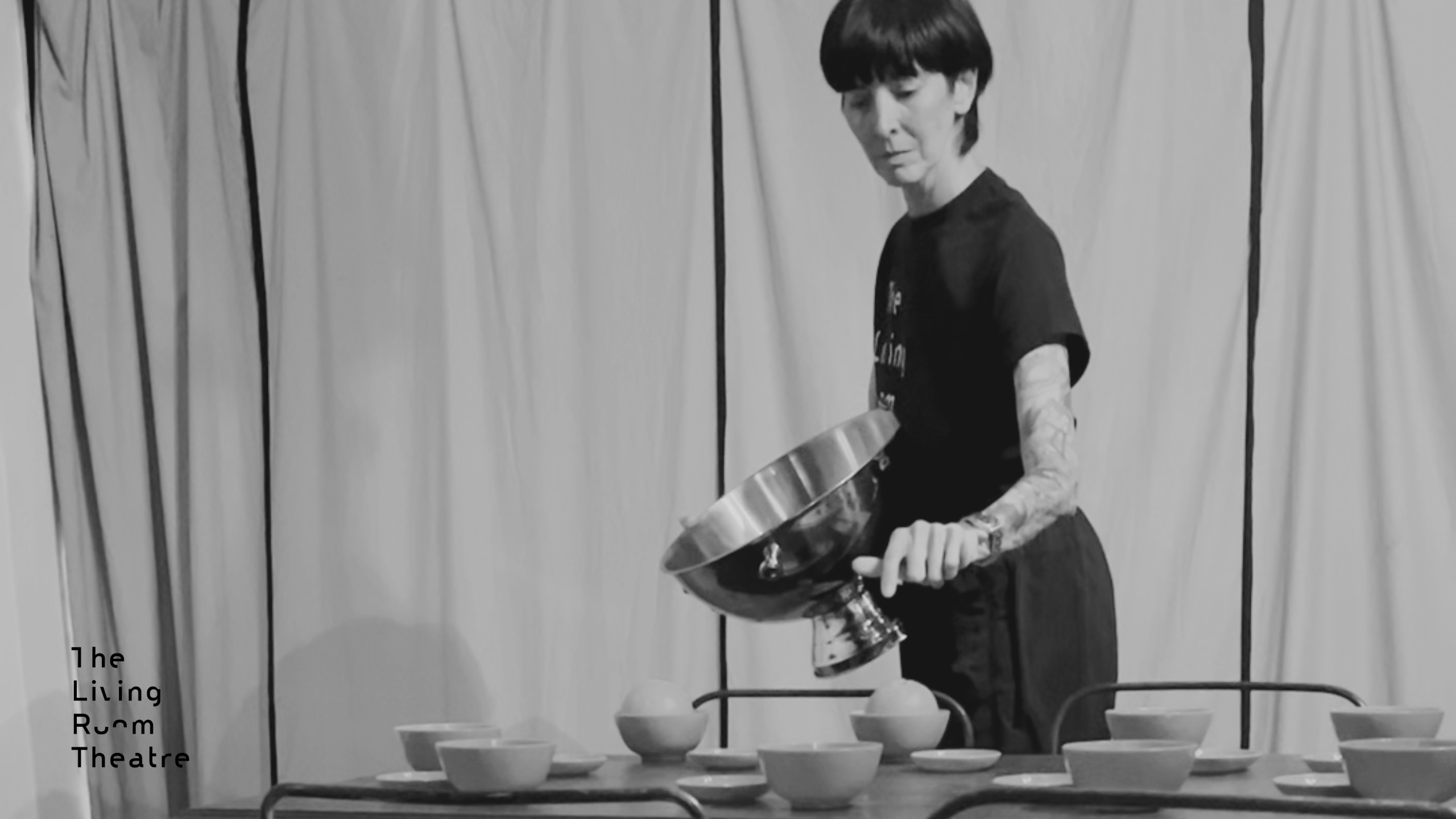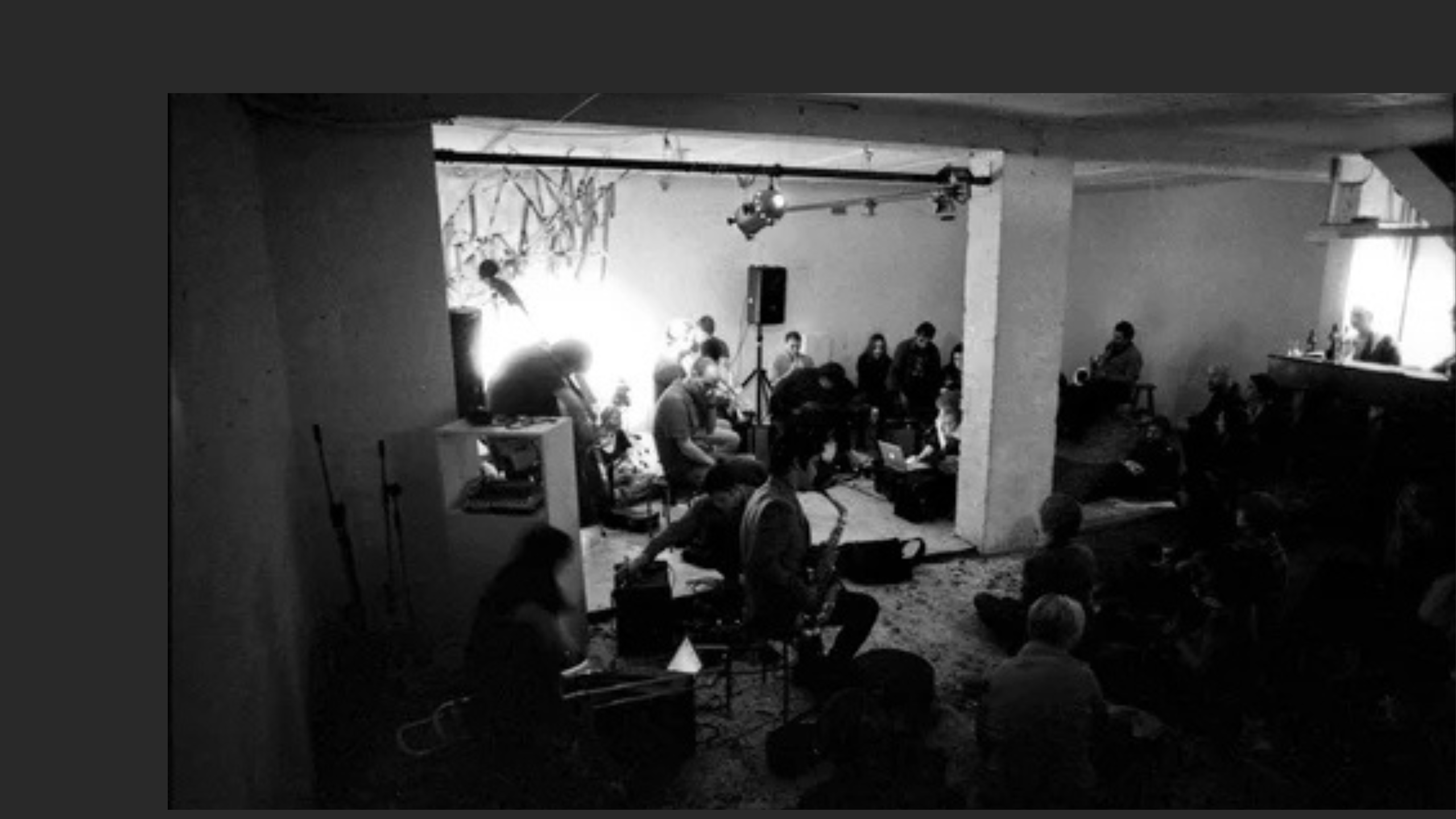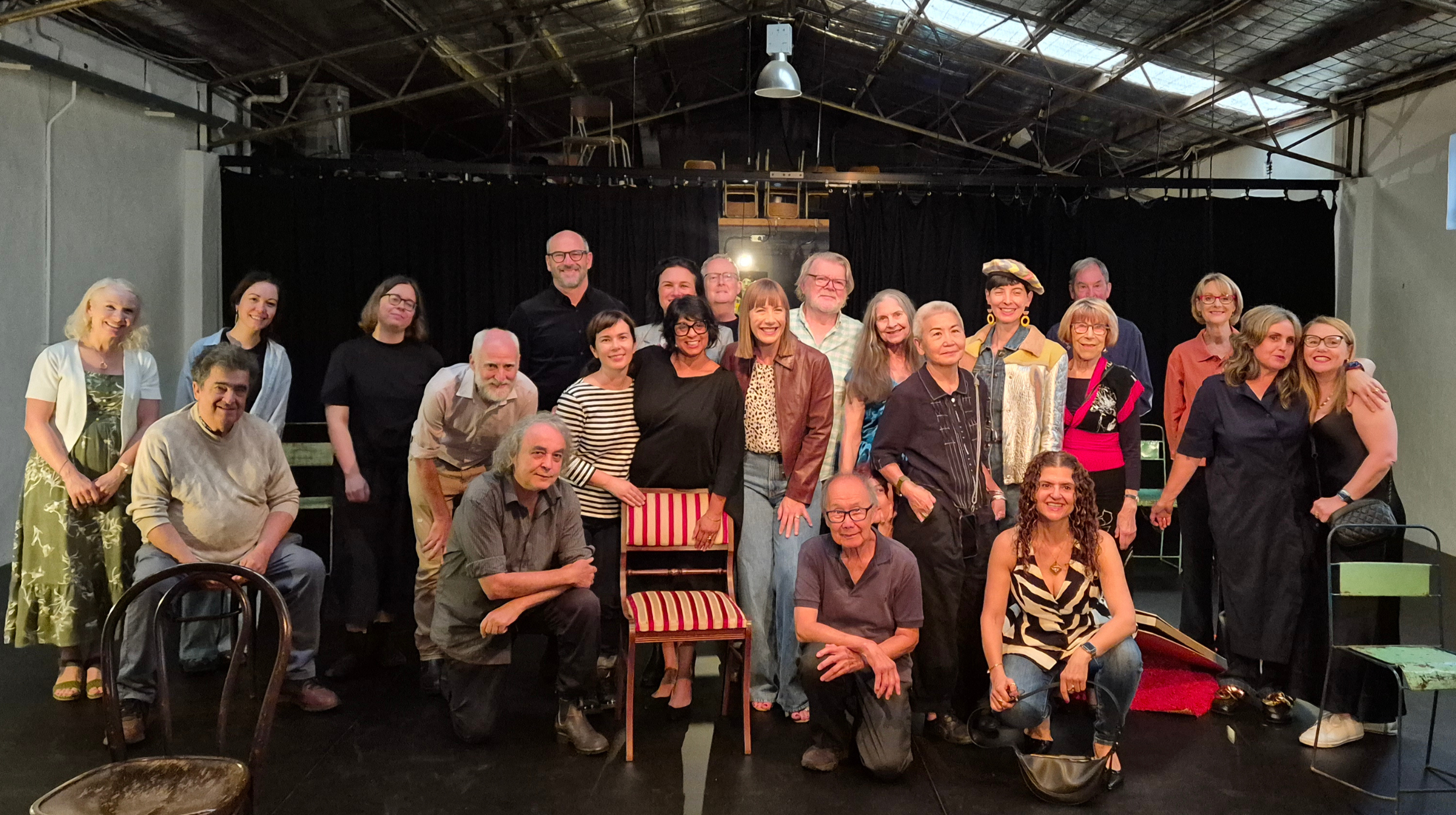
Translating past hurts: A reflection on The Reckoning
Edited by Anastasia Mortimer
27.07.2022
LRT intern Iris Higginbotham recalls her experience of witnessing Michelle St Anne’s . The Reckoning’ – a viewing of this work-in-progress, which featured an image based concert with Microfiche, Imogen Cranna and Cloé Fournier. In this article, Iris reflects on the impact of viewing a story that mirrored her lived experience, which ties in her unique perspective a theatre creator and student in Film and Theatre & Performance studies.
The bay: Salt on the air, darling point, boat masts, lapping water, bird shit, sand and weatherboards. These are the things that shape my memory as I recall what I have seen at Critical Path. Plastic chairs: more funding for independent avant-garde theatre needed (apply within). Waiting: pre-performance chat, introductions, someone’s running late. Musicians: waiting in the lounge, bare feet – was this before or after the performance? My chlorinated wet hair: I have just been swimming.
My chlorinated wet hair…I remember this the clearest, my chlorinated wet stringy hair. The way it sticks to the back of my neck. Its smell. Its slow-drying, crunchy-end, public-pool feel. I remember wanting to shower. I remember getting sweaty from the heat of the dancers, like secondary mimesis of symptoms. My psychosomatic racing heart; holding my breath as the dancers struggled to catch theirs. Their unrelenting movements caused me to pant, like when you watch someone sprint and start to feel faint.
Why do I remember this? Later, when I cry during the performance I’ll feel the tears from my cheeks down to my feet. The skin between my toes will still be wet because I’ll forgot to towel them dry. I’ll hold my breath the same way I do during laps in the water, but I will not be able to keep it all in. A salty sticky stream will seep out from my eyes. I’ll gasp quietly, slipping in the air from the side of my mouth, while I listen to a story spoken by a girl just like me – about a man who is somehow both nameless, and famous. A man who remains the reason why we all keep screaming #metoo.
My mum sitting next to me will keep trying to catch my eye and I will stare stubbornly ahead because I cannot look at her. I refuse to take my eyes of the dancers who will not stop. I will not miss it. I will not give up a moment of watching them. They will not stop hurtling on: for me or for anyone. I will both long for and fight against the desire to be swept up in the cacophony of sounds and in the dancers unstopping frenetic jumping; the Hit-Hit-Hit of feet on the floor. As I sit in a state that is the quiet breath of an ‘oh’ the sensitive part of my heart is hit open, and has called to me. The moments in which I, too, have unstoppingly jumped against the frame of my own body, trying to find a way out, or another way through.
Somehow all my past hurts have been translated through Michelle St Anne’s The Reckoning, and not in a way I ever expected them to take shape. It is the most real, and the most shattering feeling of acknowledgement, of my body, other bodies, and the shared fury at what has been momentarily possessed, away from us, into another’s hands, another’s body, face, spit, reach, mouth, word and touch. Returned to us only after someone else has staked their claim and removed our parts, our whole, to insert their own being instead.
“That was my life, that’s my life” my mother says to Michelle after the performance is over.
After seeing The Reckoning I spent some time writing…writing, and re-writing, and deleting, then writing again…I’ve found it hard to write about my experience in a way that actually captures what I saw. Increasingly difficult to describe my thoughts, to set about arranging the bodies on stage into words that make sense of them, finding language that can impart a sense of the piece to a reader.
The Reckoning in many ways defied the sort of clinical categorisation that is typical of traditional text-based Theatre. Performance often follows a linear, decipherable structure, the which as a student, I can organise into formal, technical, dramatic elements. If I were to do this now, the power of the work would be lost. St Anne’s enchaînement, with its rejection of rules, its dispensing with textual adherence, its deviation from narrative and yet its simultaneous embrace of shared story placed me firmly in the realm of feeling. When writing this I kept asking myself how to express the equation of this particular performance, when it was the viewing of the thing that created my connection with, and understanding of, its resultant sum of parts. To whittle it down now to a discussion of stagecraft, to say ‘then the ensemble played this track’ or ‘the dancers danced like this’, its essence would be lost. A disservice I think, to you and I.
St Anne’s work, nuanced and deft, enacted an aliveness, a kind of flexibility, wherein an assemblage of moving parts rallied doggedly against clarification, against reduction. And isn’t that just fantastic, that a piece questioning systems of institutional power, can disorganise and disrupt to such an extent that words can no longer regulate, control or even describe it. As we embark on an act of tearing down, there is no other way but to take unfamiliar and unfollowable forms. Even now, the work remains stuck inside me, always calling me back.
That is one of the wonderful things about seeing a work-in-progress: it unfurls, beyond the time that you have seen it. In momentum; in memory and also in a tangible physical reality. St Anne is still creating, the musicians are still composing, the dancers will dance again. The piece will continue to be workshopped, and we will be given the opportunity to once more witness its electric life, played out upon the rehearsal floor. The Reckoning as an act, is a process of movement, of change, and I am gifted the knowledge, in my recollection, that when I see it again, the work may well be wholly new.
Iris Higginbotham is a performer, writer, crafter and experimental filmmaker working on Gadigal land. She is currently studying a BA (Hons) at the University of Sydney, double majoring in Film and Theatre & Performance studies, with plans to graduate in 2023. Iris has produced and acted for the Sydney Fringe Festival, interned for Sydney Film Festival (2019), and volunteered with AFI/AACTA (2018). She is currently producing the Sydney University Dramatic Society (SUDS) major production Everynight (2022) at the Seymour Centre and working on a short film.
Photo: The Reckoning_ Natalie Carney_Rolling Media
Image: Imogen Cranna and Cloé Fournier


